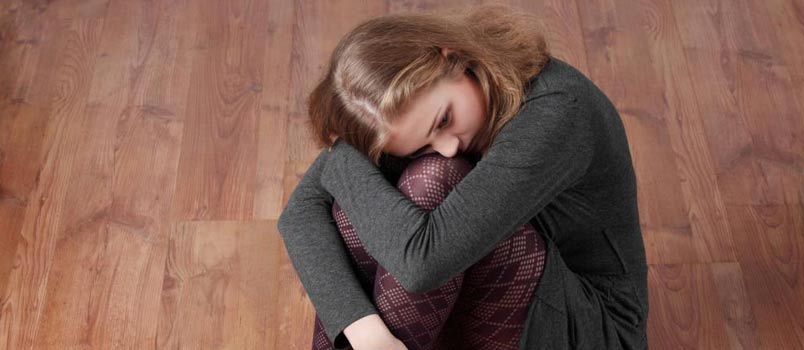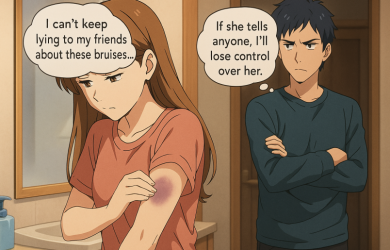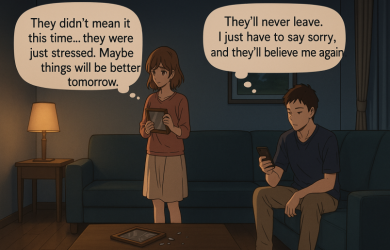6 Reasons of Spousal Abuse In A Marriage

Heal & Grow Daily for a Happier Relationship
👉 Subscribe FREEKey Takeaways
Marriage.com AI Quick Summary
It’s alarmingly common – people get married, hope for a happily ever after, and when they take a look at their marriage one day, the illusion of a kind and loving spouse is far gone. The person they were supposed to trust with their life and happiness is the very person who causes them most sadness and unfortunately, often jeopardizes their health and safety by indulging in spousal abuse.
Although such relationships are under the psychological examination for decades, it is still impossible to pinpoint the causes of an abusive relationship, nor what triggers the abuser to engage in a violent episode.
However, there are certain common traits of many such marriages, and of many perpetrators of abuse. Here is a list of five common reasons why spousal abuse happens in a marriage, what causes physical abuse and why do abusers abuse:
1. Trigger-thoughts
How do abusive relationships start?
Research shows that what directly precipitates violence in a marital argument is a sequence of very detrimental thoughts, which frequently present an entirely distorted image of reality.
It is not uncommon for a relationship to have its set ways of arguing that often go nowhere and are truly unproductive. But in violent relationships, these thoughts are the causes of abuse and potentially dangerous for the victim.
For example, a few such cognitive distortions that often ring in the perpetrator’s mind, or back of his or her mind, are: “She’s being disrespectful, I can’t allow that or she will think I’m weak”, “Who does she think she is, speaking to me that way?”, “Such an idiot just can’t be brought to reason otherwise than by force”, etc.
Once such beliefs come to the abuser’s mind, it seems that there is no going back and the violence becomes imminent.
Related Reading: Intimate Partner Violence
2. Inability to tolerate being hurt
It is difficult for everyone to be hurt by the one we love and we committed our lives to. And living with someone, sharing everyday stress and unpredictable hardships will inevitably lead to being hurt and disappointed sometimes. But most of us deal with such situations without becoming violent or psychologically abusive towards our spouses.
Yet, perpetrators of spousal abuse exhibit utter inability to tolerate being done wrong (or their perception as being damaged and offended). These individuals exhibiting abusive behavior react to pain by inflicting pain on others. They cannot allow themselves to feel anxiety, sorrow, to appear weak, vulnerable, or to be put down in any way.
So, what makes a relationship abusive in such cases is that they charge instead and attack relentlessly.
Related Reading: Effects of Emotional Abuse
3. Growing up in an abusive family
Although not every abuser comes from an abusive family or a chaotic childhood, the majority of aggressors does have a childhood trauma in their personal history. Similarly, many victims of spousal abuse also often come from a family in which the dynamics were toxic and filled with either psychological or physical abuse.
In that way, both the husband and the wife (often unconsciously) perceive the spousal abuse in marriage as the norm, maybe even as an expression of closeness and affection.
On the same lines, watch this video where Leslie Morgan Steiner, a domestic violence victim herself, shares her own experience where her partner, who had a dysfunctional family, used to abuse her in every way possible and explains why domestic violence victims are not able to easily come out of an abusive relationship:
Related Reading: Why Do Women Stay in Abusive Relationships
4. Lack of boundaries in a marriage
In addition to a low tolerance to being hurt by the abuser, and high tolerance to aggression, abusive marriages are often characterized by what might be described as a lack of boundaries.
In other words, unlike intimacy in a healthy romantic relationship, people in abusive marriages typically believe in an unbreakable bond between them. This might just answer the question that people have that why does abuse happen even in so-called loving relationships.
This bond is far from romance, it presents a pathological dissolution of boundaries that are necessary for a relationship. In that way, it becomes easier both to abuse the spouse and to tolerate being abused, as neither one feels separated from the other. Thus, the lack of boundaries emerges as one of the common causes of physical abuse.
Related Reading: The Importance of Healthy Boundaries in Marriage
5. Lack of empathy
An expected reason that enables the perpetrator to commit violence against someone with whom they share their life with is lack of empathy, or a seriously diminished feeling of empathy, one that gives way to impulses all the time. A person with abusive tendencies often believes that they have almost supernatural power to understand others.
They often do see others’ limitations and weaknesses quite clearly. This is why, when confronted with their lack of empathy in an argument or at a psychotherapy session, they passionately dispute such a claim.
Nonetheless, what eludes them is that empathy doesn’t mean just seeing others’ flaws and insecurities, it has an emotional component to it and comes with care for and sharing of others’ feelings.
In fact, it was found in a study conducted by the University of Barcelona that putting the abuser in the victim’s shoes using an immersive virtual reality system, the abusers were able to realize how fearful their victims felt while being abused and it improved their perception of emotions.
Related Reading: How to Build Empathy in Relationships
6. Substance abuse
Substance abuse is one of the common causes of abuse in relationships. According to the American Journal of Public Health, it has also been found that these two are inter-related also in the sense that sometimes the perpetrators of the abuse also force their victims into using alcohol and drugs. Many episodes of violence also involve the use of alcohol or illicit drugs.
Gender dynamics in spousal abuse
It is also interesting to note that the prevalence of spousal abuse in the LGBTQ community is grossly under-reported mainly due to a fear of being further stigmatized as a community, the underlying perceptions about the strength of men and women and more.
The ostracization also exists when gender roles are reversed in heterosexual relationships, where the abusive spouse’s behavior is not given much importance while being reported if the abuser is a woman. All of this can further embolden the abuser to continue the cycle of violence.
Marriage is always difficult and takes a lot of work. But it should never bring spousal abuse and suffering from the side of those who are meant to protect their partners from harm. For many, change is possible, with professional help and guidance, and many marriages are known to thrive after getting it.
 Tips
Tips
Write your tip or submit a video tip
All tips are reviewed before the publishing.
Share this article on
Want to have a happier, healthier marriage?
If you feel disconnected or frustrated about the state of your marriage but want to avoid separation and/or divorce, the marriage.com course meant for married couples is an excellent resource to help you overcome the most challenging aspects of being married.
Recent Articles
Related Quizzes
Heal & Grow Daily for a Happier, Healthier Relationship
👉 Subscribe FREE on YouTube We'd love your feedback!
We'd love your feedback!
 Expert Q&A
Expert Q&A
Ask your question related to this topic & get the support you deserve from experts.





















 Thanks for your feedback!
Thanks for your feedback!